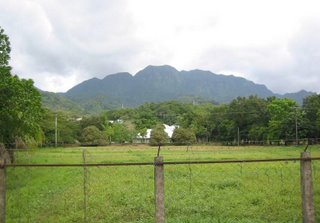
Adelaide
Adelaide is a modern multi-cultural town with a great lifestyle. It is an important centre for education, art, culture and science. The town centre with its parks is characteristic for an Australian metropolis – despite its large size, all the facilities are within easy reach.
The climate in Adelaide can be compared to a Mediterranean climate and especially during the Summer the long beaches on the south coast are a popular holiday destination. We recommend a visit to Kangaroo Island where you can see kangaroos, koala bears and other animals in their natural habitat.
The school
Our school in Adelaide is the oldest local language school. It is situated in the cultural centre of Adelaide opposite the university near various shops, cafes and cinemas. All 13 classrooms are air-conditioned. The school also has a computer room, a small kitchen and a rest room. All tutors are highly qualified and emphasize an international atmosphere. The school also organises excursions to Cleland Wildlife Park, the National Wine Centre or the Gaol Marialta Falls.
Brief information
Average groups size
13, maximum 15
Students
Adults of all ages, minimum age 18
Language levels
all
Internet access
free in school
Average temperatures
summer (January) 32°, winter (August) 15°
Average water temperatures
summer (January) 22°, winter (August) 10°
LISA! Quality Mark
Study English in Adelaide: Member of IALC and EA. Accredited by NEAS.
Sightseeing in Adelaide
Adelaide has a lot of cultural and sports activities to offer. We recommend a visit to Adelaide Festival Center for concerts, exhibitions and theatre performances. The town centre of Adelaide is home to a variety of museums.The surroundings of Adelaide offer large parks which are ideal for relaxing. We also recommend a visit to Cleland Wildlife Park where you will see untouched nature and fascinating wildlife such as koala bears, kangaroos and emus. You can even book a guided tour through the night, an indescribable experience. For chocolate lovers we recommend a visit to Haigh’s Chocolate Factory and a guided tour after which you won’t be able to get past the gift shop! The Old Adelaide Prison was opened in 1841 and can now be visited on Saturdays from 11:00 to 15:30.
Accommodation
Family: Single room (SR) with full board (FB). Average distance to the school: 20 minutes by public transport.
Farmstay: Accommodation on a farm, single room (SR) with full board (FB). Average distance to the school: 60 minutes by public transport.
Hostel: Single room (SR) with shared bath / WC and shared kitchen. Laundrette and lobby. International atmosphere, basic equipment. Average distance to the school: 15 minutes by public transport.
Courses and prices
Standard Course
20 lessons (55 minutes each) per week group tuition
Prices in €
Hostel
Family
Farmstay
SR
SR FB
SR FB
1 week
409
412
413
2 weeks
663
669
671
3 weeks
920
929
932
4 weeks
1177
1189
1193
8 weeks
2205
2229
2237
12 weeks
3183
3219
3231
extra week
256
259
260
Intensive Course
30 lessons (55 minutes each) per week group tuition
Prices in €
Hostel
Family
Farmstay
SR
SR FB
SR FB
1 week
465
468
469
2 weeks
805
811
813
3 weeks
1089
1098
1101
4 weeks
1365
1377
1381
8 weeks
2465
2489
2497
12 weeks
3499
3535
3547
extra week
285
288
289
Star Course Plus 5
20 lessons (55 minutes each) per week group tuition+ 5 lessons per week private tuition
Prices in €
Hostel
Family
Farmstay
SR
SR FB
SR FB
1 week
635
638
639
2 weeks
1045
1051
1053
3 weeks
1516
1525
1528
4 weeks
1969
1981
1985
8 weeks
3815
3839
3847
12 weeks
5615
5651
5663
extra week
465
468
469
Star Course
20 lessons (55 minutes each) per week private tuition
Prices in €
Hostel
Family
Farmstay
SR
SR FB
SR FB
1 week
1095
1098
1099
2 weeks
1975
1981
1983
3 weeks
2849
2858
2861
4 weeks
3739
3751
3755
extra week
929
932
933
FCE, CAE Preparation Course
23 lessons (55 minutes each) per week group tuition
Prices in €
Hostel
Family
Farmstay
SR
SR FB
SR FB
10 weeks
3095
3125
3135
12 weeks
3759
3798
3811
CPE Preparation Course
23 lessons (55 minutes each) per week group tuition
Prices in €
Hostel
Family
Farmstay
SR
SR FB
SR FB
12 weeks
4659
4725
4747
Dates and services
Outbound travel day:
Return travel day:
Sunday
Saturday
Course start dates:
Courses begin every MondayCambridge Certificate: 01.01.-11.03. (10 weeks) - Exam: 12.03.19.03.-09.06. (12 weeks) - Exam: 14.06.-16.06.17.09.-09.12. (12 weeks) - Exam: 13.12.- 15.12.
No lessons on the following dates:
03.01.; 26.01.; 14.04.; 17.04.; 25.04.; 16.05.; 13.06.; 03.10.; 25.12.; 26.12.
Package includes:
Language course as booked
Accommodation as booked
Loan of course materials
Organized social/activity programme
Travel advice and information
Certificate on course completion
Additional services:




